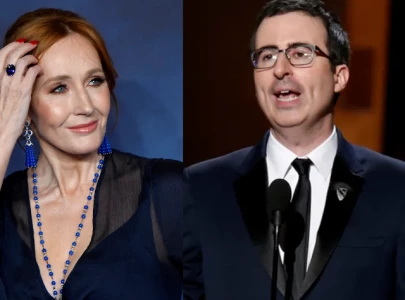
Waheed’s project is one of the 13 displayed at the museum by students of the departments of Product Design and Interior Design. The common focus seems to be introduction of new concepts, particularly in utilising space and resources.
Waheed, an aspiring automobile designer, says that motorbikes, though widely used, have not had a ‘facelift’ ever since they were introduced. “Every new company launches a copy of the market leader’s product. That seems to perpetuate the idea that no change is needed,” he says to explain why he chose to focus on motorcycles.
For his degree project, Waheed approached several motorcycle manufactures and was offered a sponsorship by the Ravi Motorcycle Company. They asked him to work on a CD70 within a set of parameters determined by the company.
Waheed says that he designed the new model keeping riders’ safety and comfort in mind. “I have made the seat a little wider and given it some height.
These changes will improve the posture of whoever is driving the bike. I have also made the motorcycle less vulnerable to fuel theft,” says he while elaborating on the aspects of design that he has worked on. Other modifications include bigger rear-view mirrors and indicators.
According to him a few buyers have expressed an interest in his design. Waheed hopes to get a foreign degree before he starts working. In the same hall, a ‘Rubikiosk’, a kiosk that derives its inspiration from the Rubik cube, grabs your attention. It has been made especially for low-budget business investors. Fyque Nadeem’s sponsor, The Mall of Lahore, had asked him to design a kiosk for their entrance. The portable kiosk, which is nothing less than a shop on wheels, has a metal body and a locking system and can be arranged in various ways.
The two adjacent halls on both sides of the Mughal Hall are occupied by projects of Interior Design students.
“Can the owner of a tea house afford to run the house by serving tea for just Rs10 a cup?” Aqfa Nazir starts off with a rhetorical question. “No, he cannot. And here is where the government needs to jump in to rescue our dying culture.”
Nazir’s final year was spent trying to come up with how to revamp and decorate the Pak Tea House, which for years was a haven for poets and writers like Saadat Hassan Manto, Faiz Ahmed Faiz, Intezar Hussain, A Hameed and Ustad Amanat Ali to name a few.
For the project Nazir studied those who spent time at the tea house. Sketches turned into paintings that then transformed into a three-storey building.
Nazir proposes that the site of the Uniform House, a government owned dilapidated building nearby, be availed for the ‘reincarnation’ of the tea house.
Other projects included a portable theatre with an aim to help revive the culture of street theatre in Pakistan, remodelling of the City Railway Station and restaurants and interior designing of a spa and a space centre.
Published in The Express Tribune, January 29th, 2011.



1731975305-0/Untitled-design-(40)1731975305-0-165x106.webp)
1731975060-0/Untitled-design-(39)1731975060-0-165x106.webp)












COMMENTS (1)
Comments are moderated and generally will be posted if they are on-topic and not abusive.
For more information, please see our Comments FAQ